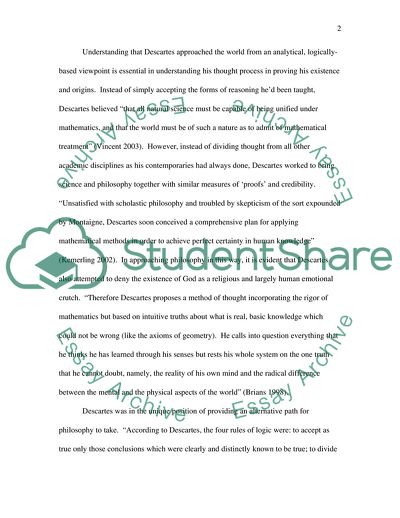Cite this document
(Descartes Existence Essay Example | Topics and Well Written Essays - 3000 words, n.d.)
Descartes Existence Essay Example | Topics and Well Written Essays - 3000 words. https://studentshare.org/philosophy/1723312-choose-out-of-4-topics-in-philosophy-renaissance-enlightment
Descartes Existence Essay Example | Topics and Well Written Essays - 3000 words. https://studentshare.org/philosophy/1723312-choose-out-of-4-topics-in-philosophy-renaissance-enlightment
(Descartes Existence Essay Example | Topics and Well Written Essays - 3000 Words)
Descartes Existence Essay Example | Topics and Well Written Essays - 3000 Words. https://studentshare.org/philosophy/1723312-choose-out-of-4-topics-in-philosophy-renaissance-enlightment.
Descartes Existence Essay Example | Topics and Well Written Essays - 3000 Words. https://studentshare.org/philosophy/1723312-choose-out-of-4-topics-in-philosophy-renaissance-enlightment.
“Descartes Existence Essay Example | Topics and Well Written Essays - 3000 Words”. https://studentshare.org/philosophy/1723312-choose-out-of-4-topics-in-philosophy-renaissance-enlightment.


